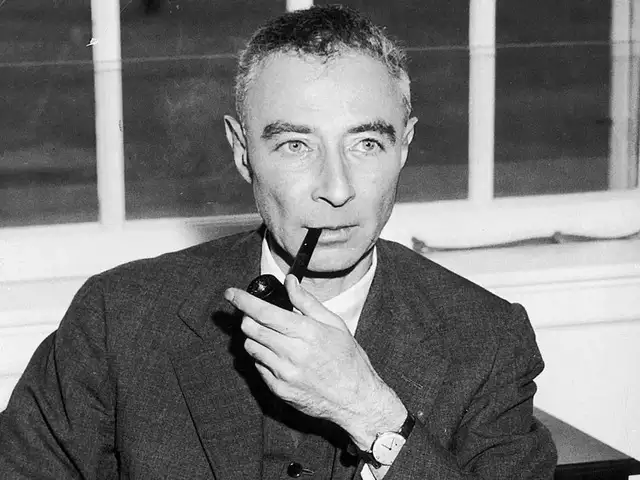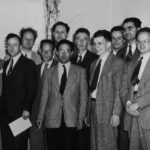J. Robert Oppenheimer, the “father of the atomic bomb,” is renowned for his contributions to physics. However, his genius extended far beyond the realm of science. Oppenheimer was a true polyglot, fluent in six languages, a testament to his intellectual curiosity and cultural awareness. This article delves into the languages Oppenheimer mastered and how his multilingualism shaped his life and work.
Oppenheimer’s Linguistic Arsenal
While history remembers him for splitting the atom, Oppenheimer could have built bridges with his words as easily as he built bombs. Here’s a look at the languages he commanded:
- English: His native language.
- German: Fluent, likely due to his family’s heritage and his studies at the University of Göttingen, a renowned center for scientific research.
- French: Fluent, enabling him to engage with French literature and collaborate with scientists internationally.
- Dutch: He reportedly learned Dutch in just six weeks to deliver a lecture at the University of Leiden, showcasing his astonishing ability for language acquisition.
- Greek and Latin: He likely acquired these classical languages through his education, as was common for scholars of his time.
- Sanskrit: Oppenheimer delved into Sanskrit, driven by his fascination with Eastern philosophy. While the extent of his fluency is debated, his interest in this ancient language reveals a mind eager to explore diverse cultures and modes of thought.
The Impact of Multilingualism on Oppenheimer’s Life and Work
Oppenheimer’s linguistic talents weren’t merely impressive; they were instrumental in his scientific pursuits and personal development. His fluency in German, a hub of scientific progress at the time, granted him access to a wealth of research and the ability to connect with leading scientists in the field. French opened doors to collaboration with international researchers and allowed him to delve into the works of literary masters.
His mastery of multiple languages suggests that Oppenheimer understood the importance of cross-cultural communication, especially in a field as collaborative and globally significant as scientific research. His ability to converse with colleagues from different countries, read scientific papers in their original languages, and understand diverse cultural perspectives likely contributed to his success as a scientist and leader, particularly during the Manhattan Project.
Beyond science, Oppenheimer’s interest in languages like Sanskrit suggests a broader intellectual hunger and a desire to engage with different ways of understanding the world. His exploration of Eastern philosophy likely influenced his worldview and perhaps even his perspective on the ethical implications of his own scientific creations.
Oppenheimer: A Legacy Beyond the Bomb
J. Robert Oppenheimer’s legacy is intricately woven with the development of the atomic bomb. However, his mastery of multiple languages reveals a man of diverse intellectual passions and a deep appreciation for culture and communication. His story reminds us that true genius often transcends disciplinary boundaries and that embracing different languages can be a pathway to broader understanding, expanded opportunities, and a richer, more interconnected world.
Are you curious about the wealth accumulated by the renowned actress Katharine Ross? Explore our comprehensive article on Katharine Ross’s net worth to uncover her financial journey and the factors that have contributed to her success.
- Jerry McSorley’s Post-Divorce Life: New Beginnings - July 16, 2025
- The Rise and Fall of the New Haven Nighthawks: A Minor League Hockey Legacy - July 16, 2025
- Unlock Jerry McSorley’s Career Highlights: Eye Tax Inc.’s Solar Success - July 16, 2025
















